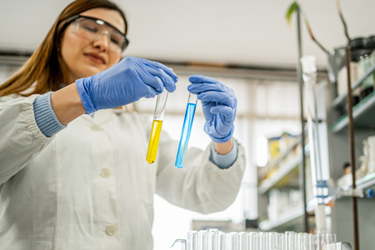Draft EMA Doc Proposes More Flexibility On Biosimilar CES Requirements
By Jackie Mulryne, Christopher Bates, and Ana Gonzalez-Lamuno — Arnold & Porter

The European Medicines Agency (EMA) has published a draft reflection paper proposing a streamlined pathway for the approval of certain biosimilar medicinal products in the EU by reducing the clinical data requirements where justified.
Biosimilars are biological medicinal products that are demonstrated to be highly similar to an already authorized biological medicinal product, known as the reference medicinal product (RMP), with no clinically meaningful differences in terms of quality, safety, or efficacy. Biosimilar marketing authorization applications are subject to reduced data requirements compared to a full application. However, the applicant must submit a data package from a comparability exercise demonstrating that the purported biosimilar is highly similar to the RMP. Typically, this will require a comparative clinical efficacy study (CES) to confirm the similarity (though this requirement can already be waived in certain circumstances).
In its reflection paper, the EMA sets out the prerequisites for more general principles for when requirements for a CES may be waived, and only a limited, targeted clinical data package (based on a comparative pharmacokinetic (PK) trial) will be accepted. Where this approach is adopted, this is likely to reduce the clinical development burdens for biosimilar companies.
Approval Of Biosimilar Medicinal Products
Biosimilar development traditionally follows a stepwise comparability exercise to demonstrate similarity to the RMP. This process typically involves:
- quality studies including analytical testing of structure and functional (biological/ pharmacological) properties,
- non-clinical in vitro studies, and
- clinical studies assessing PK, pharmacodynamics, safety, and efficacy. Typically, this will require a CES to confirm that there is no meaningful difference in clinical efficacy of the biosimilar.
EMA’s Proposal
Under the EMA proposal, a CES may not be necessary if there is strong evidence that the biosimilar is similar to the RMP in terms of clinical efficacy and safety, based on analytical comparability, in vitro pharmacology studies, and PK data. In these circumstances, it is acceptable to infer comparable clinical efficacy and safety based on demonstrating similarity in structure and function.
1.Prerequisites for a similarity assessment
The EMA outlines several prerequisites for a successful similarity assessment:
- A comprehensive understanding of the mechanism of action of the active substance.
- Detailed characterization of the structure and functionally relevant quality attributes (QAs).
- Availability of functional assays (in vitro pharmacology tests).
- A validated manufacturing process and control strategy.
- A similarity assessment protocol covering analytical and functional comparability.
2. When a CES may not be necessary
According to the EMA, a CES may not be necessary when the totality of evidence from the comparability exercise is sufficiently robust. Specifically, this occurs when:
- The mechanism of action and structure-function relationship are well understood.
- Robust analytical similarity is demonstrated, with all key QAs being highly similar to the RMP, in terms of structure and functional properties. Minor differences are justified and shown to be not clinically relevant.
- In vitro functional data supports similarity, demonstrating comparable pharmacological activity and mechanism of action.
- Comparable PK profile is demonstrated through PK studies (i.e., absorption, distribution, metabolism, excretion) with the RMP.
- No critical differences in QAs are identified that could impact clinical outcomes (e.g., those altering the mechanism of action).
3. When a CES would be necessary
A CES would generally remain necessary in the following cases:
- The biosimilar is not well-characterizable.
- The mechanism of action and structure-function relationship is unclear.
- The clinical impact of observed QA differences is uncertain.
- PK characterization is not feasible (e.g., locally applied products with negligible systemic absorption).
- The biosimilar fails to meet similarity criteria for critical QAs (noting that a CES cannot be used to justify substantial differences).
Why This Matters For Companies
For companies developing or planning to develop or market biosimilar medicinal products in the EU, the EMA’s proposal could offer:
- Lower development costs: Avoiding or limiting CES could eliminate a costly and time-intensive phase of biosimilar development.
- Faster time to market: A streamlined pathway allows for earlier regulatory submission and approval.
- Greater regulatory predictability: Clearer guidance helps companies plan biosimilar development strategies more efficiently.
However, for originator biologics companies, this is likely to lead to lower barriers to entry for competitors.
Next Steps And Wider Context
The draft reflection paper is open for consultation until September 30, 2025. Companies developing or planning to develop biosimilars may consider submitting feedback to help shape the final guidance.
The draft reflection paper reflects a wider trend toward the approval of biosimilars without confirmatory CES. The U.K.’s Medicines and Healthcare products Regulatory Agency (MHRA) has already adopted a similar approach in its licensing of biosimilars. The MHRA’s current guidance on licensing of biosimilars states that in most cases, a comparative efficacy trial may not be necessary provided the applicant has a sound scientific rationale for this approach. According to the guidance, this must include justification of comparable efficacy (i.e., from comparable binding properties and functional characteristics) and justification of comparable safety and immunogenicity (which should be supported by the results of a PK trial).
A version of this article was originally published as a blog post on Arnold & Porter’s BioSlice Blog. It is republished here with permission.
About The Authors:
 Jacqueline Mulryne is a partner on Arnold & Porter’s life sciences team. She provides regulatory, policy, and compliance advice to companies in pharmaceutical and medical technology sectors as well as cosmetics and foods. She supports companies on a broad range of issues including intellectual property rights, clinical research, market authorization, and market access strategy.
Jacqueline Mulryne is a partner on Arnold & Porter’s life sciences team. She provides regulatory, policy, and compliance advice to companies in pharmaceutical and medical technology sectors as well as cosmetics and foods. She supports companies on a broad range of issues including intellectual property rights, clinical research, market authorization, and market access strategy.
 Christopher Bates, senior associate at Arnold & Porter, is a member of the firm’s life sciences team. The main focus of his practice is advising pharmaceutical and medical device companies on a range of regulatory issues across the product life cycle, including product borderlines, clinical studies, regulatory exclusivities, marketing authorizations, and CE marking, distribution, manufacturing, promotion, market access, and vigilance.
Christopher Bates, senior associate at Arnold & Porter, is a member of the firm’s life sciences team. The main focus of his practice is advising pharmaceutical and medical device companies on a range of regulatory issues across the product life cycle, including product borderlines, clinical studies, regulatory exclusivities, marketing authorizations, and CE marking, distribution, manufacturing, promotion, market access, and vigilance.
 Ana Gonzalez-Lamuno, associate at Arnold & Porter, advises clients in the pharmaceutical, biotechnology, and medical device sectors with expertise in the areas of clinical investigations, product classification, authorization, pharmacovigilance, marketing and promotional activities, and privacy and data protection. She received law degrees from the Universidad de Cantabria and the College of Europe.
Ana Gonzalez-Lamuno, associate at Arnold & Porter, advises clients in the pharmaceutical, biotechnology, and medical device sectors with expertise in the areas of clinical investigations, product classification, authorization, pharmacovigilance, marketing and promotional activities, and privacy and data protection. She received law degrees from the Universidad de Cantabria and the College of Europe.
